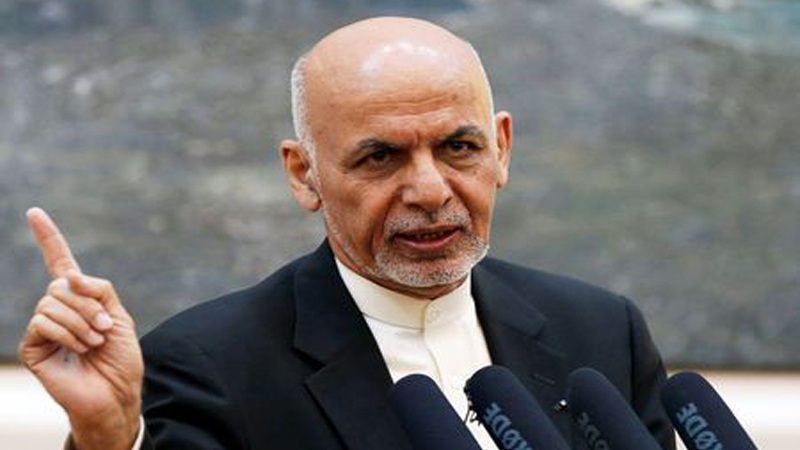
Afghan President Ashraf Ghani gave his first indication on Sunday that vice President Abdul Rashid Dostum could be allowed to return from exile after days of protests by the former warlord’s supporters.
Ethnic Uzbek leader Dostum was forced into exile last year over accusations of human rights abuse, settling in Turkey.
In recent days supporters of Dostum’s Junbish-i Milli party have staged protests across northern Afghanistan, blocking major highways and shutting down government buildings including electoral offices.
Speaking at a news conference in Kabul, Ghani said Dostum’s case was under consideration and “the possibility of his return has increased.”
“His case has a legal aspect and it is with the attorney general,” he said, promising more information later.
Dostum, a great survivor of Afghanistan’s turbulent politics who has faced multiple accusations of human rights abuses over decades, denies accusations that he ordered his guards to kidnap, beat and sexually abuse a political rival. He has not been charged.
Kabul’s international partners including the United States have demanded that Dostum face justice. Last year he flew to Turkey, ostensibly for medical treatment, and has not returned since.
However, while in exile Dostum has kept his formal title of vice president and his influence among the ethnic Uzbeks of northern Afghanistan has remained strong, fuelled by growing enmity among the country’s mix of different ethnic groups including Pashtuns and Persian-speaking Tajiks and Hazaras.
With parliamentary elections due in October ahead of the more important presidential vote next year, tensions have risen sharply as Afghanistan’s political strongmen position themselves and the cracks in Ghani’s unwieldy unity government widen.
On Saturday, a meeting of the main parties demanded that voter registrations be annulled because of concerns over electoral fraud, a demand Ghani angrily rejected, pledging the elections would go ahead as planned.
Although Dostum joined Ghani as one of two vice presidents in the national unity government formed after the disputed 2014 presidential election, he has always been an uncomfortable partner.
While in exile, he has formed a loose coalition with Atta Mohammad Noor, one of the leaders of the mainly Tajik Jamiat-i Islami party and Mohammad Mohaqiq, a leader of the Hazara ethnic minority.
Published in Daily Times, July 16th 2018.